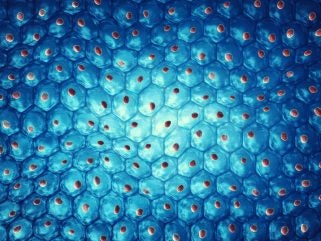

Mesoblast’s cell therapy for end-stage heart failure could be eligible for an accelerated approval filing, the company has said based on feedback it received from the US Food and Drug Administration (FDA) feedback to the company.
Australian cell therapy-focused biotech Mesoblast and the FDA held a Type B meeting to discuss the next steps with Revascor (rexlemestrocel-L) on 21 February this year. As a result of discussing potential pathways to the allogenic therapy’s licensure, the FDA indicated that the accelerated approval pathway could be an option due to positive clinical evidence.
The agency has already granted regenerative medicine advanced therapy (RMAT) and orphan drug designations to the therapy intended for patients with end-stage ischemic heart failure with reduced ejection fraction who have been implanted with a left ventricular assist device (LVAD).
There are currently no FDA-approved cell therapies for the treatment of heart failure, despite research highlighting it as a promising new approach.
To support the therapy’s case, Mesoblast pointed to a placebo-controlled study evaluating Revascor, which is off-the-shelf, in 70 patients with end-stage heart failure with reduced ejection fraction. The company reported lower levels of the inflammatory cytokine IL-6 in patients implanted with the cells, according to a 10 March press release.
A single administration of the therapy also led to 63% of participants gaining temporary weaning from LVAD support, compared to 36% in the control arm. Of those receiving the therapy, 4.9% died from month two to month 12, compared to a control of 26.9%.
Access the most comprehensive Company Profiles on the market, powered by GlobalData. Save hours of research. Gain competitive edge.

Your download email will arrive shortly
We are confident about the unique quality of our Company Profiles. However, we want you to make the most beneficial decision for your business, so we offer a free sample that you can download by submitting the below form
By GlobalData
LVADs are the standard of care for patients who progress to end-stage heart failure, of which there are approximately 100,000 in the US each year. Though efficacious, LVADs can present complications including infection and bleeding.
Though Mesoblast did not detail the endpoints and if they were met, the company reported the FDA indicated that the “presented results may support a reasonable likelihood of clinical benefit of mesenchymal precursor cells against mortality in LVAD patients”.
Mesoblast’s CEO Dr Silviu Itescu said: “We intend to request a pre-biologics licence application (BLA) meeting to discuss data presentation, timing and FDA expectations for an accelerated approval filing.”
Cell therapy landscape for heart failure
Mesenchymal precursor cells are the earliest cells of the mesenchymal cell lineage (MCL) in adult tissues. Mesoblast has developed an MCL technology platform to develop different cell types with functional characteristics to target discrete diseases.
Although there is a range of clinical trials investigating cell-based therapies for the treatment of heart failure, BioCardia presents the biggest competition to Mesoblast, with the former having two assets in clinical trials for heart failure treatment. Despite its autologous therapy recently failing a Phase III trial, the treatment has demonstrated positive results with other endpoints. BioCaridia also has an allogenic therapy in a Phase I/II trial.
While autologous transplants come from the same patient being treated for the disease, allogenic stem cell therapies – such as Revascor – come from a donor.
Alongside Revascor, Mesoblast is also developing Ryoncil (remestemcel-L) for inflammatory diseases in children and adults. In November 2023, the company partnered with the Blood and Marrow Transplant Clinical Trials Network to gain additional for the medicine following an initial FDA rejection for its use as a treatment for steroid-refractory acute graft versus host disease (GvHD).
Mesoblast’s candidates help reduce inflammation by releasing anti-inflammatory factors that modulate different aspects of the immune system.
Mesoblast has tied up big deals for assets based on its technology platforms. German company Grünenthal gained European and Latin American rights to Phase III asset MPC-06-ID in a 2019 deal that could exceed $1bn depending on milestones. MPC-06-ID is being evaluated for the treatment of chronic low back pain.
Cell & Gene Therapy coverage on Pharmaceutical Technology is supported by Cytiva.
Editorial content is independently produced and follows the highest standards of journalistic integrity. Topic sponsors are not involved in the creation of editorial content.

Sign up for our daily news round-up!
Give your business an edge with our leading industry insights.
